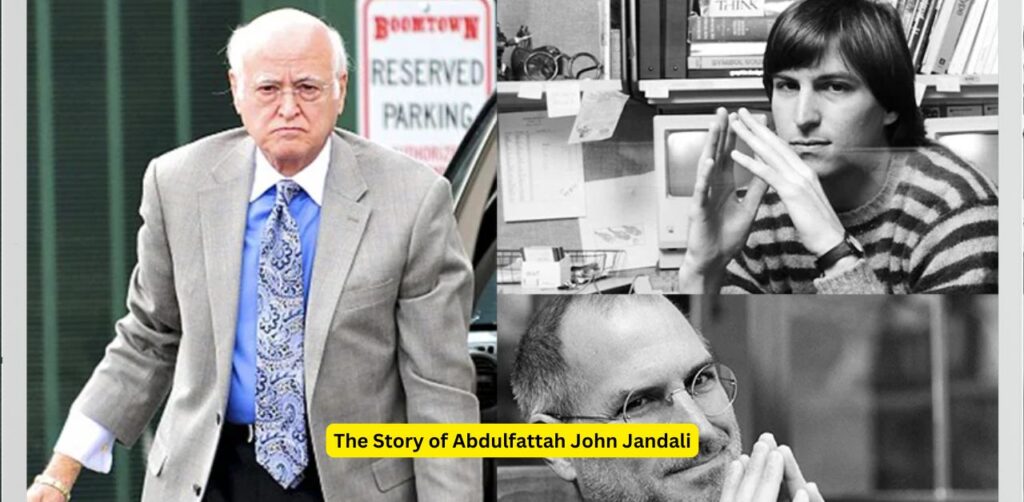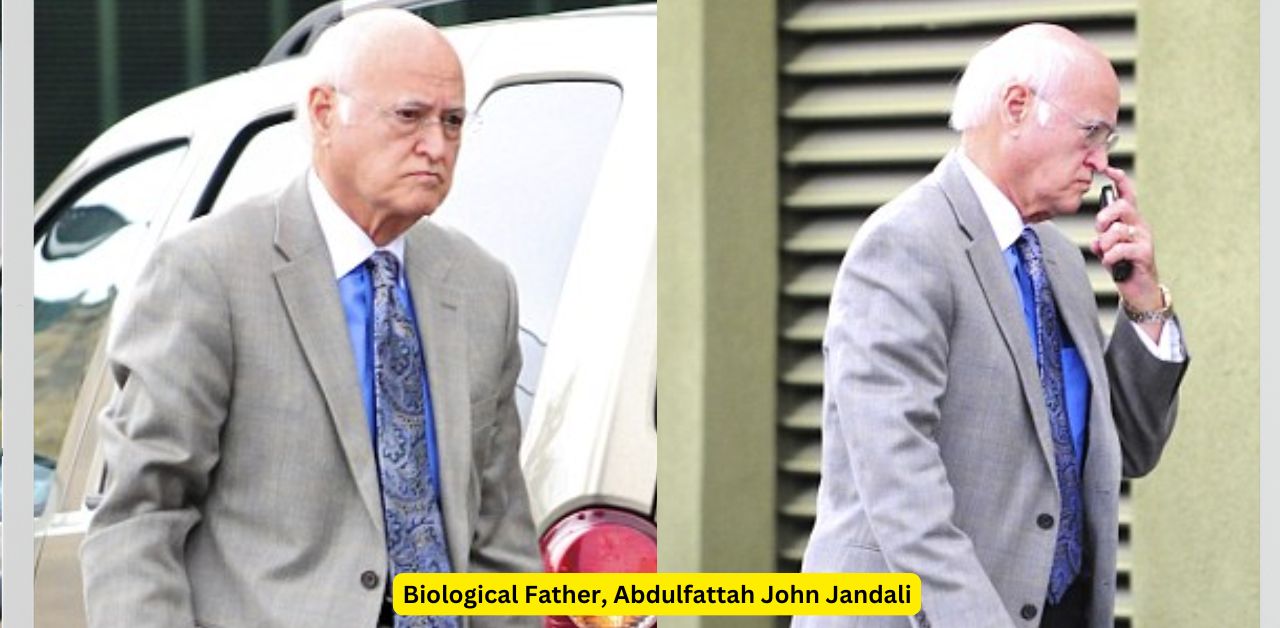Steve Jobs, the visionary behind Apple, is often celebrated as an influential iconoclast whose innovations reshaped the technology industry.
However, beneath his public persona lies a deeply intricate family saga that reflects a journey of identity, connection, and emotional complexity.
Central to this narrative is his relationship with his biological father, Abdulfattah John Jandali.
Their interactions reveal layers of delicate feelings and missed opportunities, showcasing the profound impact of familial relationships on personal identity.
| Fact/Detail | Information |
|---|---|
| Full Name | Steven Paul Jobs |
| Date of Birth | February 24, 1955 |
| Place of Birth | San Francisco, California, USA |
| Adoption | Adopted shortly after birth |
| Adoptive Parents | Paul and Clara Jobs |
| Biological Parents | Joanne Schieble and Abdulfattah Jandali |
| Siblings | Mona Simpson (biological sister) |
| Education | Reed College (dropped out) |
| Key Companies Founded | Apple Inc., NeXT, Pixar Animation Studios |
| Major Products Launched | Macintosh, iPod, iPhone, iPad |
| Date of Death | October 5, 2011 |
| Age at Death | 56 years |
| Net Worth at Death | Approximately $10 billion |
The Origins of Steve Jobs
Background of Steve Jobs
Steve Jobs was born on February 24, 1955, in San Francisco, California. His biological parents, Joanne Schieble and Abdulfattah John Jandali, were young and unprepared for parenthood.
They made the difficult decision to give him up for adoption, a choice that would shape Jobs’ life in ways he would only later begin to understand.
- Adoptive Family: Jobs was adopted by Paul and Clara Jobs. His adoptive father, Paul, worked as a machinist, while Clara was an accountant. They nurtured Jobs’ early interests in electronics and design, laying the groundwork for his future innovations.
- Sibling: Jobs later found out he had a biological sister, Mona, who would become a pivotal figure in his life.
The Story of Abdulfattah John Jandali

Abdulfattah John Jandali, a Syrian immigrant, and Joanne Schieble met at the University of Wisconsin.
Their relationship faced significant obstacles, particularly due to cultural disapproval surrounding their mixed backgrounds.
After their son was born, they were unable to marry, leading to the decision for adoption.
- Background: Jandali was an accomplished individual who would later become a successful businessman. His journey from Syria to the U.S. reflects broader themes of immigration and cultural assimilation.
- Missed Connections: The complex interplay between Jobs’ adoption and his parents’ backgrounds highlights the symbolism of lost opportunities and the impact of cultural disapproval.
Read As:Codie Sanchez Net Worth 2024: Contrarian Investor’s Financial Empire
Steve Jobs Journey to Discovery
Jobs’ Search for Identity
Throughout his life, Jobs grappled with feelings of abandonment, which often influenced his business decisions and personal relationships. The search for his biological family became intertwined with his quest for identity.
- Impact on Career: Jobs’ drive for perfectionism and innovation can be seen as a reflection of his desire to prove himself, both to the world and, subconsciously, to his biological family.
- Curiosity and Reflection: His growing curiosity about his biological roots intensified after he learned about Jandali’s identity, prompting him to explore these connections.
The Moment of Realization
Jobs’ discovery of his biological father’s identity marked a pivotal moment in his life. In interviews, he expressed a mix of emotions curiosity, apprehension, and ultimately, a desire for connection.
- Emotional Responses: He often reflected on the complexities of identity exploration and the pain of feeling incomplete, which drove him to seek out Jandali.
Unforeseen Encounters
First Meeting with Jandali
Jobs’ initial encounter with Abdulfattah Jandali is shrouded in emotion and anticipation. This meeting occurred in the late 2000s after Jobs had already established himself as a tech mogul.
- Context: The meeting took place in a casual setting, which juxtaposed their contrasting lives—Jobs as a billionaire and Jandali as a respected yet less affluent individual.
- Emotional Dynamics: Their conversation was filled with awkwardness but also a sense of hope. Jobs often felt a mix of admiration and resentment, struggling to reconcile the gap between their worlds.
The Complexity of Their Relationship
Jobs and Jandali’s relationship remained complicated, reflecting a profound emotional complexity that many can relate to.
- Conversations and Connections: They discussed their lives, interests, and shared aspirations, yet the underlying tension of familial issues was always present. Jobs felt both drawn to and distant from Jandali.
- Character Portrayal: Jandali’s perspective as a father was marked by regret and longing, illuminating the internal conflict between wanting to connect and the realities of their past.
A Hope for Reconciliation
Attempts at Connection
Over time, Jobs’ feelings toward his biological father evolved. He recognized the importance of understanding his roots, which led to several attempts at building a relationship.
- Personal Growth: As he matured, Jobs began to appreciate the complexities of family dynamics, acknowledging that reconciliation requires vulnerability.
- Reflections on Forgiveness: He often spoke about the necessity of forgiveness in his life, not just for Jandali, but for himself. This introspection reflects a broader theme of human relations and the need for empathy.
Final Reflections
In the later years of his life, Jobs expressed a deeper understanding of his relationship with Jandali. The hope for reconciliation was not just about familial ties but also about embracing one’s identity.
- Significance of Forgiveness: Jobs recognized that understanding one’s past is crucial for personal development. His relationship with Jandali exemplified the complex tapestry of family ties, filled with both pain and potential healing.
- Broader Implications: Their story resonates with anyone who has navigated the often turbulent waters of family dynamics. It serves as a reminder that while relationships can be fraught with challenges, they also hold the potential for profound understanding and connection.
Frequently Asked Questions
Why did Steve Jobs not want to meet his biological father?
Steve Jobs struggled with feelings of abandonment and had complex emotions about his biological father, leading him to hesitate in pursuing a relationship.
Were Steve Jobs parents rich?
No, Jobs’ adoptive parents, Paul and Clara Jobs, were not wealthy; they lived modestly but provided a nurturing environment for him.
How old was Steve Jobs when he was adopted?
Steve Jobs was just a few weeks old when he was adopted by Paul and Clara Jobs.
Who raised Steve Jobs?
Steve Jobs was raised by his adoptive parents, Paul and Clara Jobs, who instilled in him a love for technology and creativity.
What did Steve Jobs learn from his father?
Jobs learned about craftsmanship and the importance of attention to detail from his father, who was a skilled machinist.
When did Steve Jobs meet his biological sister?
Steve Jobs met his biological sister, Mona, for the first time in the late 1980s, after he discovered his family background.
Conclusion
The emotional complexity of Steve Jobs’ relationship with his biological father, Abdulfattah John Jandali, encapsulates the essence of human relationships filled with tension, longing, and the desire for connection.
Their story reflects the intricate dance of identity exploration and familial issues that many individuals face.
In examining Jobs’ journey, we uncover themes of missed connections, reconciliation, and the delicate balance between acceptance and regret.

Mark Johnson is a dedicated writer with 5 years of experience in the celebrity realm, delivering captivating stories and industry insights. Beyond celebrity writing, he has a rich background in general content creation, covering topics from lifestyle to culture. With a knack for storytelling, Mark connects with readers through engaging narratives and fresh perspectives.

